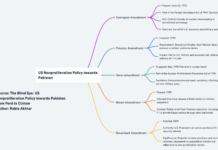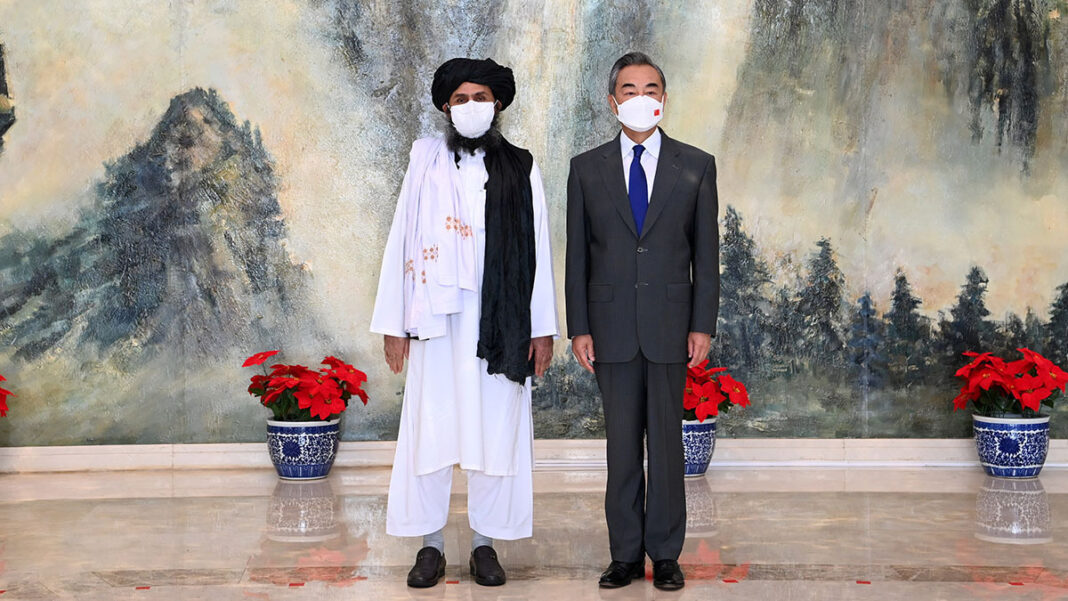Jalal Ud Din Kakar
Located at one of the intersections of South and Central Asia, Afghanistan is too important to be ignored by its neighbors. Given its location, continued chaos in Afghanistan does not bode well for regional connectivity and integration. This fact is not lost on China, a gargantuan power committed to making the entire region a more connected one. Indeed, realizing the import of a stable, peaceful Afghanistan for regional integration, China has gradually increased its engagements in and with that country. However, unlike other great powers who tried to control Afghanistan through militarized involvements for longer periods, China is more inclined towards using geoeconomics to good effect in that country. China, it must be stressed, understands that the policies adopted by great powers, not least the United States, did not stabilize Afghanistan. Washington’s 20-year-long presence in the landlocked country exemplified how foreign interventions became a bane for Afghanistan, for they created security and political vacuums there. China is certainly cognizant of the need to fill those.
After the withdrawal of U.S. forces from Afghanistan ,China has continued to show pragmatism through its engagements with the Afghan Taliban. Though China continues to advise the Taliban to change tack on key issues, including the roles of women, it is very much enthused at the prospect of using its economic instruments in Afghanistan (geoeconomics). China’s interest in bringing Afghanistan in its economic fold is understandable. if some semblance of peace is not restored in Afghanistan, it might put China’s security at risk. Increasing levels of instability in Afghanistan can not only exacerbate China’s security concerns in its restive western parts but also jeopardize the realization of its multidirectional economic vision.
All this necessitates making Afghanistan a stakeholder in China’s grander economic initiatives. Here, it is important to note that China seems ready and willing to make Afghanistan an important partner in its gigantic Belt and Road Initiative (BRI). Doing so by extending the China-Pakistan Economic Corridor (CPEC) to Afghanistan would provide it a great opportunity to kickstart its stagnant economy. That said, China would use its geoeconomic heft to push the Taliban to come good on their promises. China, for instance would persuade the Taliban to disallow Afghan territory to be used for perpetrating acts of terrorism against Afghanistan’s neighbors. This issue, it must be noted, is one of China’s biggest security concerns. Hence, China aims to eliminate the security threats that Afghanistan’s unrest poses. According to China, developing strong economic relations with Afghanistan is one way of fighting the scourge of terrorism given that it would build the capacity of the Afghan government to deal with inimical forces. Further, China is committed to providing assistance to the Afghan government, with a view to helping it combat terrorism, a phenomenon that directly threatens Chinese strategic interests.
All this has been fittingly described by Feng Zhang in a paper titled “China’s New Engagement with Afghanistan After the Withdrawal.” He argues that China has the following goals in Afghanistan: (I) preventing Afghanistan from becoming a safe haven for terrorists again; (II) promoting inclusive politics in the nation; (III) exhibiting a higher level of humanitarian care; and (IV) putting the U.S. and the West on notice for abdicating their duties. All these priorities feed into each other and explain the rationale behind China’s pragmatic approach towards the Taliban, with the economic plank lying at its core.
Also, China’s strategic engagements in the Middle East, as evidenced by its growing partnership with Iran, as well as the role it played in the Saudi-Iran rapprochement, will increase the salience of establishing a strong economic footprint in Afghanistan. China can get easier access to Iran via Afghanistan, eventually making the latter a direct stakeholder of the former’s Project Middle East. This also explains China’s interest in building infrastructure in Afghanistan, which is currently is poor to the point where it cannot support any sustainable, profitable economic activity. Afghanistan certainly needs better connectivity within the country and with the region. Moreover, China, as evidenced by the signing of a deal to extract oil in Afghanistan, is interested in tapping a reservoir of natural resources for mutual gains going forward. If both countries are able to pull this venture off, the region will stand to benefit enormously.
Therefore, it is reasonable to state that China is rightly pinning its hopes on geoeconomics to reconstruct Afghanistan, with a view to making it an important partner in its regional connectivity framework. While one should certainly be cautious in predicting the outcomes of China’s geoeconomic push in Afghanistan, it is important to note that it stands a better chance of succeeding than using that country as a battleground for great power geopolitical competition.
That said, in the grander scheme of things, China’s geoeconomic ingress in Afghanistan will not be perceived positively in the U.S. Committed to countering a rising Beijing at multiple levels and theatres, Washington might become a disruptor, something that could again see Afghanistan being at the mercy of the titans. Therefore, it is extremely important for China to use its position in regional fora like the Shanghai Cooperation Organization (SCO), to gradually help Afghanistan rebuild and grow. This is so because the entire region can ill-afford a fragmented, unstable, and chaotic Afghanistan. That, one must add, is a big impediment to any kind of regional connectivity and integration.
Jalal Ud Din Kakar is a PhD scholar of International Relations in the School of Integrated Social Sciences, The University of Lahore.

















